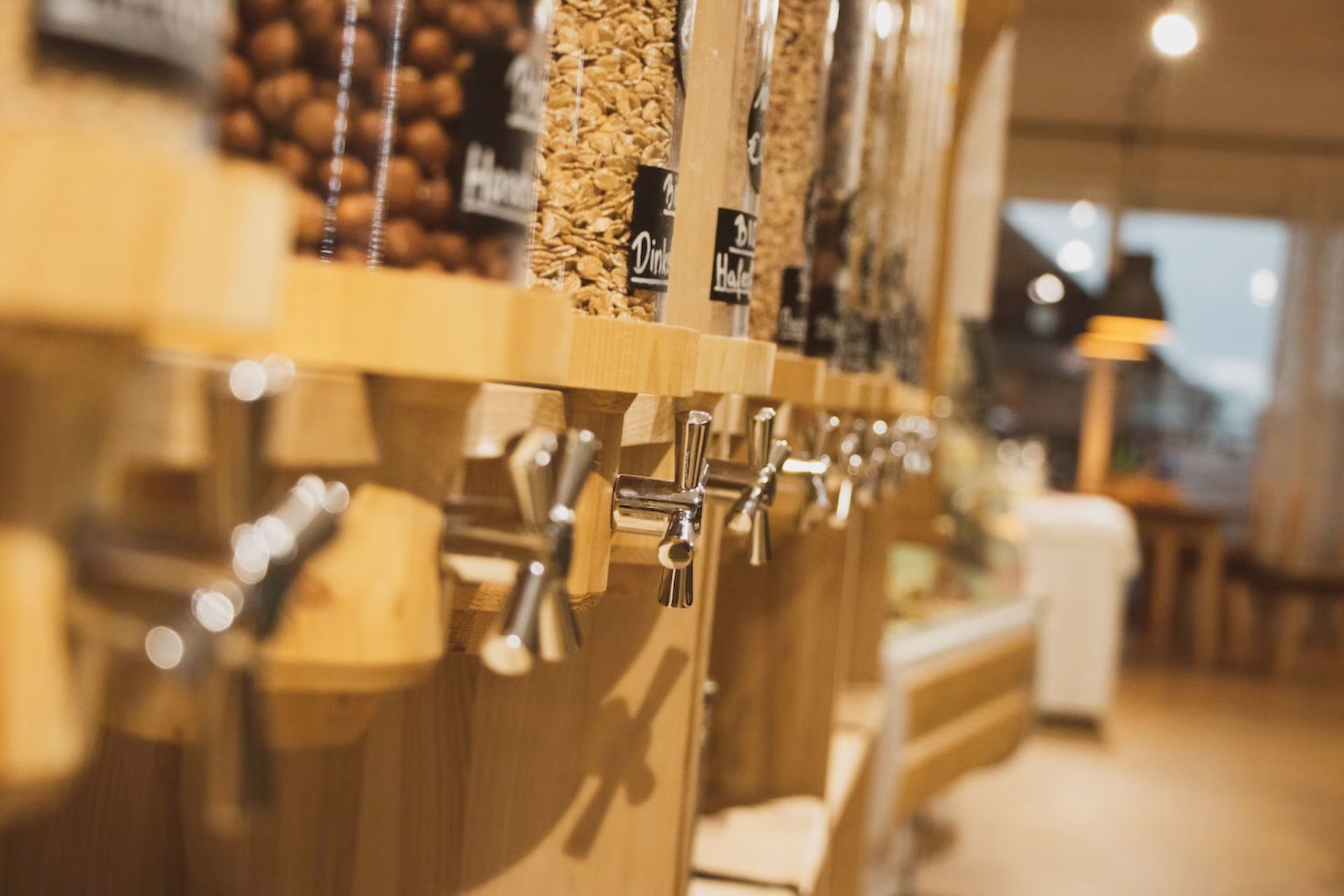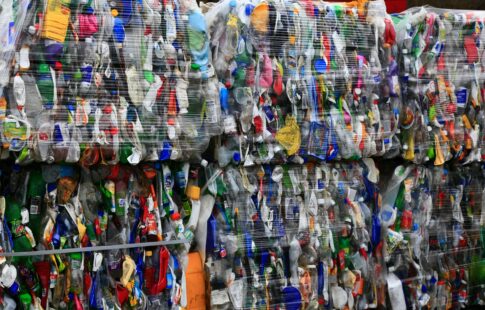
What are Zero-Waste Grocery Stores?
We are reader-supported. When you buy through links on our site, we may earn affiliate commission.
Today’s consumers are becoming increasingly concerned about the climate change crisis and the overall health of the planet we call home. The massive amount of waste in our landfills is polluting the environment, from local waterways to the ground beneath you.
Unfortunately, your typical grocery store is a major source contributing to the global waste issue. Packages for all sorts of products often get tossed to the side, ending up in landfills where they cannot decompose or be reused, repurposed or recycled.
The emergence of zero-waste, package-free grocery stores is a noticeable trend in the fast-moving consumer goods (FMCG) sector. What are zero-waste grocery stores and how do they help the environment?
The Global Issue of Waste
Globally, the issue of waste cannot go unnoticed. Whether plastic, food, clothing or consumer electronics (e-waste), all types of waste have far-reaching implications.
Here are some startling facts about waste, according to the World Economic Forum:
- Global plastic waste totals 400 million tons annually.
- Only 5-6% — or two million tons — of plastic generated is recycled.
- Around 36% of all plastic is used for packaging, with 85% ending in landfills.
- About 98% of single-use plastic items are made from fossil fuels.
A widely circulated figure states that nine percent of U.S. plastic is recycled, which is now considered an overestimate. As you can see, the issue of plastic waste is serious.
An Emerging Trend: Zero-Waste Grocery Stores
The toll of plastic waste on the environment is discussed more often, especially as people start to notice the negative effects of climate change impacting their communities.
Some countries, such as Zimbabwe, the Bahamas and Mozambique, grappled with extreme weather conditions caused by climate change and were ranked the three countries most affected by climate change in 2019.
To do their part and reduce their carbon footprint, some entrepreneurs are opening zero-waste or package-free grocery stores. These stores look and operate a bit differently from traditional grocery stores.
As their names suggest, zero-waste grocery stores allow customers to purchase food and household staples without using excessive plastic packaging or bags. They do not sell many packaged items, as they often do not get recycled properly. Instead, shop owners ask customers to bring in reusable containers and bags.
How Zero-Waste Grocery Stores Work
At zero-waste food stores, products are often stored in clear, self-serve containers with scoops and tongs. When a customer enters, they may be surprised to find mostly reusable, biodegradable or unpackaged items lining the shelves.
A zero-waste, package-free or low-waste store aims to cut down waste wherever possible.
Customers planning to grocery shop at zero-waste or package-free stores must bring their reusable containers. Suitable containers may include Tupperware, mason jars, reusable bottles and other eco-friendly storage items. While every zero-waste store is unique, many stores will weigh their customers’ containers before they shop.
Once the cashier notes the weight of a customer’s containers, they subtract it from the total when the customer finishes shopping and approaches the checkout counter. With this approach, shoppers do not pay to use their containers — they simply pay for the products’ weight.
Most zero-waste grocery stores allow their customers to buy products in bulk. There are a few benefits to purchasing food items in bulk, such as:
- Better for the environment
- Reduces food waste
- It has an average cost savings of 30-50% compared to packaged food
- It gives customers the flexibility to buy as little or as much food as they need
Notable Zero-Waste Stores Making Headlines
Although zero-waste stores have yet to replace traditional grocery stores, a few locations throughout the country have made a name for themselves.
west ~bourne, NYC
In New York City, Camilla Marcus brought her zero-waste, sustainability-oriented vision to life in the form of a restaurant called west ~bourne. Marcus is a climate-focused, renowned chef and entrepreneur who owns and operates west ~bourne, the first zero-waste grocery store in the city. Marcus created West ~bourne with the help of TRUE, a zero-waste organization providing certification services for zero-waste companies.
However, when the COVID-19 pandemic hit, Marcus had to shut down her restaurant and rebrand it as a zero-waste grocery store. The shift allowed west ~bourne to scale up and serve even more people. The company even catered for the 50th anniversary Nike event in May 2022.
Roots
In addition to zero-waste stores, some entrepreneurs are tapping into their creativity and creating combination zero-waste stores and cafés. Take Roots, for example — the Idaho-based, zero-waste market is the first of its kind in the country.
Roots sell plenty of items, including:
- Household and personal care products
- Culinary spices
- Dairy, drinks and condiments
- Produce
- Bulk pantry items
According to its official website, Roots’ mission is to tackle global packaging and food waste problems while making life simpler for consumers.
Live Zero, Hong Kong
Another zero-waste grocery brand doing its part is Live Zero. The zero-waste store is located in a neighborhood in Hong Kong and is almost completely waste-free. In a recent article from Smithsonian Magazine, Emily Matchar describes her shopping experience at Live Zero.
According to Matchar, products are stored in clear bins or dispensers for ease of use. Many staples products, such as shampoo and conditioner, olive oil and flour, are purchased by weight. Matchar mentions other stores in Hong Kong that are zero-waste, like Edgar, for example.
The zero-waste brand is making a name for itself, as it was featured in Martha Stewart, Boise State Public Radio, the Idaho Press and the Idaho Statesman publications.
The Future of Zero-Waste Grocery Stores in the U.S.
Despite their environmental benefits, zero-waste stores are not yet commonplace or found in every city across the country. They are becoming increasingly popular, but they’re often small businesses, meaning they’re competing with large food retailers like Walmart, Whole Foods, Trader Joe’s, Kroger and more — the list could go on.
Zero-waste or package-free grocery stores will remain small businesses spread throughout the nation. Real change in the corporate food retail space must occur for the zero-waste trend to take hold.
It’ll be interesting to see if these novel stores take hold and infiltrate even more communities. If you’re eager to visit a zero-waste store, visit the Litterless website, a helpful resource for all sustainability-minded consumers, to find a location near you.
Share on
Like what you read? Join other Environment.co readers!
Get the latest updates on our planet by subscribing to the Environment.co newsletter!
About the author
Steve Russell
Steve is the Managing Editor of Environment.co and regularly contributes articles related to wildlife, biodiversity, and recycling. His passions include wildlife photography and bird watching.





